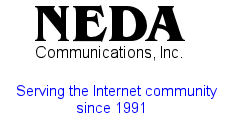Perso-Arabic Input Methods And BIDI Aware Apps
Perso-Arabic Input Methods
And Making More Emacs Applications BIDI Aware
| Document Number: | PLPC-180063 [ .bib ] |
| Version: | 0.1 |
| Dated: | November 02, 2021 |
| Group: | general |
| Primary URL: | http://www.by-star.net/PLPC/180063 |
| Federated Publications: | ByTopic -- ByContent |
| AccessPage Revision: | This AccessPage was produced on November 23, 2021 at 22:53 PST (-0800) |
| Author(s): | Mohsen Banan --- \fa{محسن بنان} |
AVAILABLE FORMATS
- Presentation-Pdf: -- 136K -- Provides the presentation document in Portable Document Format.
- Screencast-Presentation: -- 4.0K -- Displays the presentation document as a Reveal.Js web page.
- Article-Pdf: -- 20K -- Provides the article document in Portable Document Format.
- Article-Html: -- 4.0K -- Displays the article document as a web page.
- Presentation-Article-Pdf: -- 92K -- Provides the presentation document as an article in Portable Document Format.
- Presentation-As-Article-Html: -- 44K -- Displays the presentation document as an article web page.
AVAILABLE OTHER FORMS
- presentationEnFa.pdf: -- 136K -- .
- articleEnFa.pdf: -- 20K -- .
- presArtEnFa.pdf: -- 92K -- .
SHORT
DESCRIPTION
Emacs is a multilingual user environment. A true multilingual editor must support bidirectionality and shaping of characters. Perso-Arabic scripts require both of these features.
Starting with Emacs 24, full native bidi (bidirectional) support became available. For many years prior to that Unicode support was available and by around year 2000, reasonable open-source shaping libraries were also available.
With these in place at around 2012, I developed two Persian input methods for emacs. These input methods or variations of them can also be used for Arabic and other Perso-Arabic scripts.
With all of these in place, Emacs has now become the ne plus ultra Libre-Halaal and Convivial usage environment for Perso-Arabic users.
Since emacs comes loaded with everything (Gnus for email, Bbdb for address books, XeLaTeX modes for typesetting, org-mode for organization, spell checkers, completion systems, calendar, etc.), all basic computing and communication needs of Perso-Arabic users can be addressed in one place and cohesively.
In this talk I will demonstrate what a wonderful environment that can be.
My talk will be in two parts.
In Part 1, I cover Persian input methods. With an emphasis on "Banan Multi-Character (Reverse) Transliteration Persian Input Method". The software is part of base emacs distribution. Full documentation is available at:
Persian Input Methods
For Emacs And More Broadly Speaking
شیوههایِ درج به فارسی





